How To Test For Colorfastness When Doing Laundry & Removing Stains
"You should test for colorfastness before using certain laundry supplies." I bet you've heard that sentence before, but do you really know how to do it, and what the term even means, really?
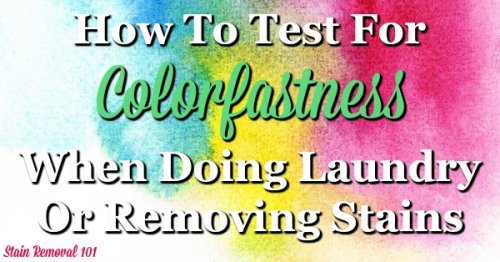
Well, if you weren't really sure how to test to see if a fabric will retain color in the face of cleaning or stain removal treatments you're not alone.
I read those instructions for years, and thought "yeah that would be a good idea," shrugged and didn't do it. Instead, I just hoped for the best with my clothes.
However, once I really learned how to do the simple tests to make sure the laundry supplies I was using on the fabric would not remove or lighten the color from it, I found it wasn't as difficult or time consuming as I thought it would be and it made me feel more comfortable in trying various treatments to remove stains from my family's clothes.
This article explains both how to conduct the tests and what the term really means, so you know why its important and why the tests really work.
What Does Colorfastness Mean And What Effects It?
The term "colorfastness" refers to how resistant the color or dye within the fabric is to removal.
Many variables effect whether fabrics retain their dye or fade or bleed easily, including the following:
- The type of dye used, including whether it is natural or synthetic
- The type of fiber the dye is applied to
- When and how the dye was applied to the fabric or thread
- The laundry supplies used to wash the fabric in, such as laundry detergents, and stain removers, including bleaches
- Temperature of the water the fabric is washed in
- pH of various substances the fabric is exposed to (including, for example, perspiration, which can actually bleach or yellow certain fabrics as part of the interaction with the dye)
- Dry cleaning solvents can effect dye in various ways
- Heat
- Sunlight, which can fade certain dyes
When To Test For Colorfastness & Why You Might Want To
As you can see with all the variables that effect whether fabric is colorfast, it can be confusing.
Therefore, before you use any laundry supplies on a fabric it is best to determine how well the fabric retains dye.
That's a lot of work though, and manufacturers are supposed to tell you if they've used dyes they anticipate will bleed, so check the care label for some clues. If a care label says "Wash separately" or "Wash with like colors" these warnings mean the dye tends to bleed.
Therefore, if the fabric care label doesn't say one of these two things I tend to just take my chances and wash items since typically most fabrics for everyday wear are colorfast.
However, the situation becomes different when the item is stained. Then, you're going to use something more powerful than water and detergent alone to clean the fabric. In such situations you need to know if the method you're going to try is going to remove or significantly lighten the dye in the fabric before you begin the process. That is when testing can be important and worth the extra time involved.
Please note that fluorescent dyes are especially prone to bleeding, especially when exposed to certain types of laundry stain removers.
Therefore, take extra care to test all stained items that are fluorescent carefully in an inconspicuous area before beginning any stain removal treatment.
How To Test For Colorfastness
Once you determine you need to test a fabric to see how it will react to your potential use of a laundry supply on it, here are the steps you should take.
Step 1: Always Test In An Inconspicuous Area
You never know how your test will turn out when you start it, so you don't want to do it in a really noticeable area since you might end up with a faded or even bleach stained spot on the fabric.
Instead, choose an inconspicuous area to test in.
What is an inconspicuous area for testing? Typically, a great place is on the wrong side of the hem of an item, or an inside seam.
Just be careful that you only treat the hem, and that the testing solution does not soak through into another area of the fabric when you're doing your test.
Step 2a: Testing For Colorfastness To Chlorine Bleach
The next step of the process depends on whether you're testing the effects of chlorine bleach, which has its own testing procedure, versus whether you're testing basically any other laundry supply.
If you're testing the use of chlorine bleach on your fabric for stain removal, use Step 2a, but for all other supplies skip down to the instructions in Step 2b.
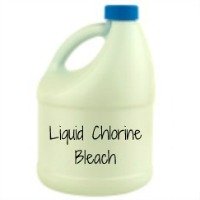
Chlorine bleach can be used not only on white fabric, but also on colorfast colored fabrics.
If you don't know if a colored fabric meets these criteria though, you've got to do a test to find out before bleaching it, or you run the risk of ruining the fabric.
First, create a solution of one tablespoon of bleach in 1/4 cup of water and use a cotton swab to dab a little of this diluted bleach solution onto the inside seam or hem.
Let this solution sit for one minute on the fabric and then blot the seam dry with a white paper towel. Look at the paper towel - is it clean, or did color come off on it? Also look at the seam. Is it the same color as the untreated fabric around it, or a lighter color?
If the seam fabric looks the same and there was no color that came off onto the paper towel you can feel more confident that the fabric is colorfast and can be safely washed in chlorine bleach.
Caution: Before using household bleach on a fabric you'll need to do this test on all colors on the clothing item, and even on all decorative trim.
Step 2b: Testing For Colorfastness To Other Laundry Supplies Such As Oxygen Bleach And Other Non-Chlorine Bleach Stain Removers
If the supply you're using is a powder, such as powdered oxygen bleach, for example, mix it with enough water to make a solution that is a bit stronger than the one you would make in the washing machine itself.
If the supply is a liquid already, go ahead and test it at full strength, without diluting it.
Then, apply a dab of the product on the hem or seam with a cotton swab and wait ten minutes.
Then, look for color changes in just the same way you did with the chlorine bleach test explained above, both checking for bleeding by blotting with a clean paper towel, and also visually looking at the area in comparison with the untreated portions of the fabric.
Assuming there is no lightening or dye transfer you can assume the fabric is colorfast and proceed with whatever stain removal treatment you planned to do to it using the laundry supply tested.
Thanks For Visiting My Website: Grab Your Free Gift!

Hi, I'm Taylor, a busy mom with 3 kids, so I have lots of hands on experience with house cleaning, laundry and my fair share of spots, spills and other messy catastrophes. Thanks for visiting my site.
I update the website all the time with tips, tutorials, cleaning recipes, reviews of products from readers like you, and tests I've done on various cleaners, removers and laundry supplies.
I'd love to give you a gift! When you subscribe to my free weekly newsletter you will receive a free printable laundry stain removal chart that you can reference as needed.
I hope you enjoy this gift, and stop by again soon!
Related Pages You May Enjoy
Laundry Tips & Tricks For Busy Moms
Top 10 Tips For Removing Stains
Go From How To Test For Colorfastness To Home Page
CAUTION: This website is provided for informational purposes only. It is provided as is, without warranties or guarantees. Some stains and messes just won't come out, and are permanent. Further, some cleaning methods can harm your item, so if what you want to clean or launder is sentimental or expensive call a professional. See disclaimer of liability for more information.
Popular Laundry How To's
How Often To Wash Everything {With Printable}
Fix Bleeding Dyes Or Dye Transfer
Let's Stay Connected!
Get Free Email Updates
(and get a FREE printable)
Related Pages
 Detergent Reviews & Information
Detergent Reviews & Information
 Visit Household Management 101
Visit Household Management 101
 Visit Home Storage Solutions 101
Visit Home Storage Solutions 101
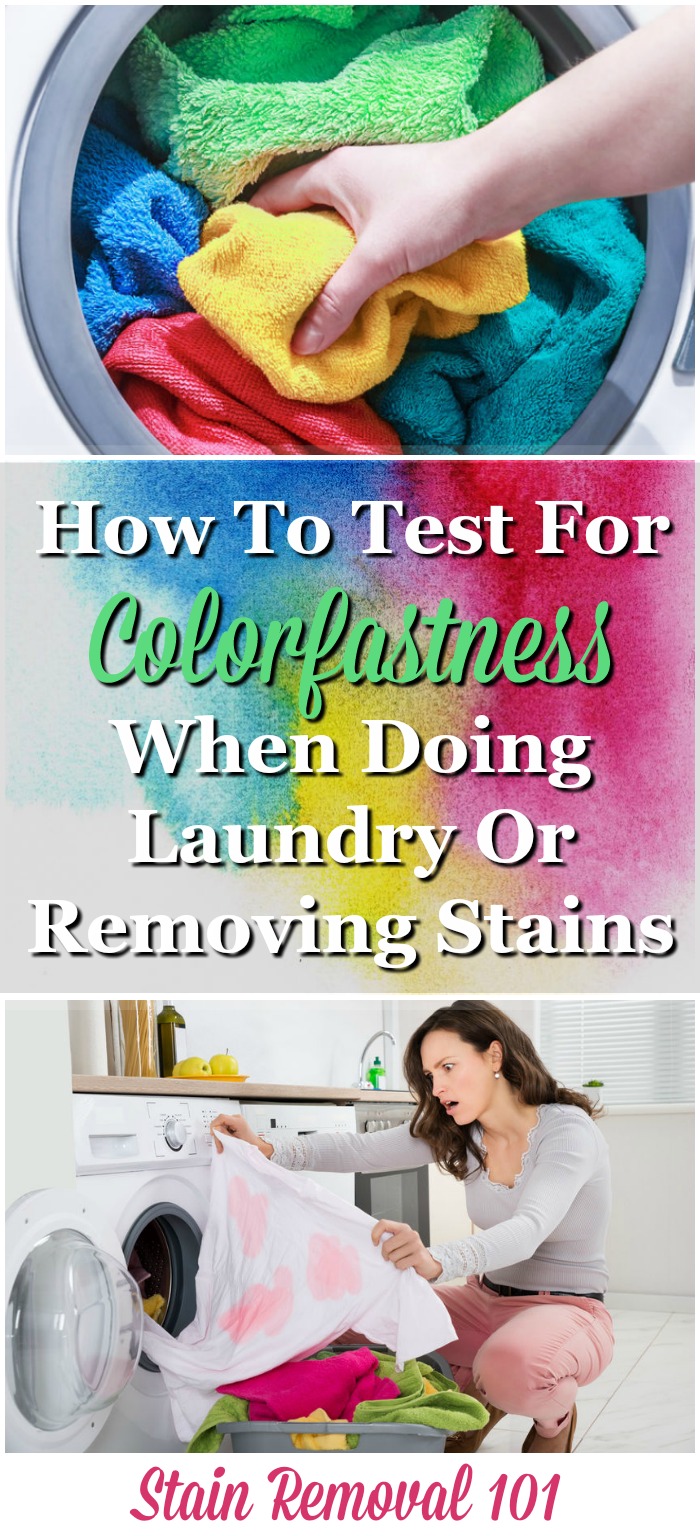
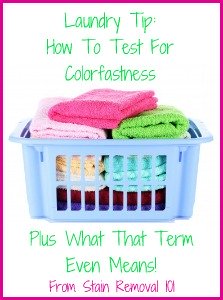

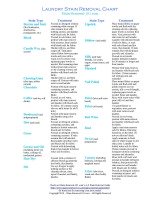


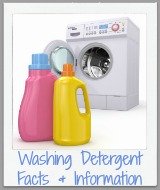

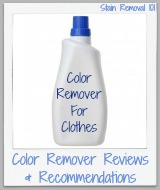
Share Your Comments, Tips & Ideas